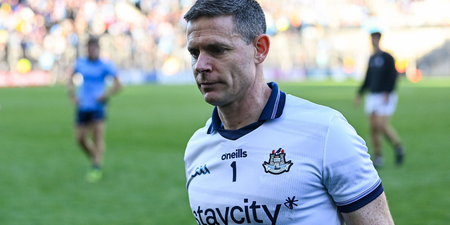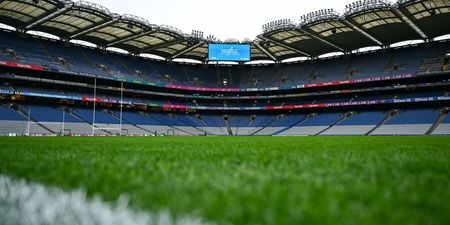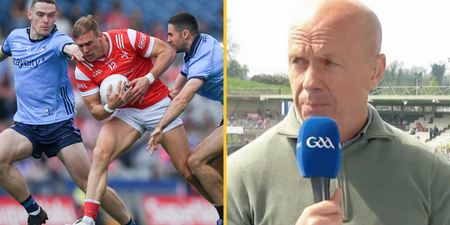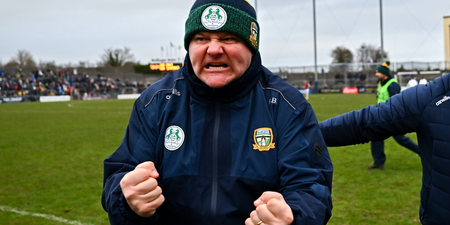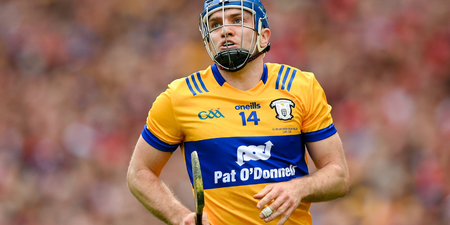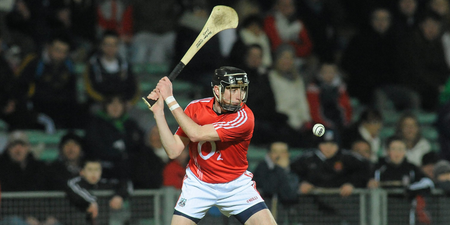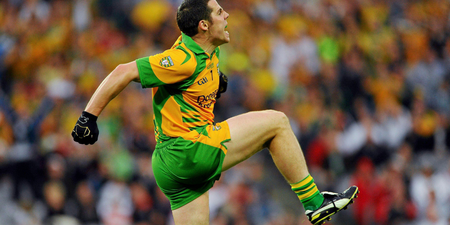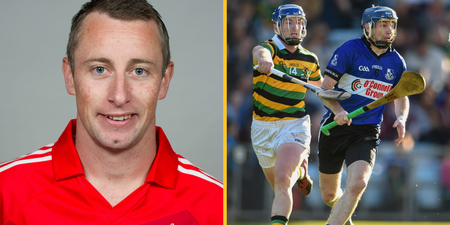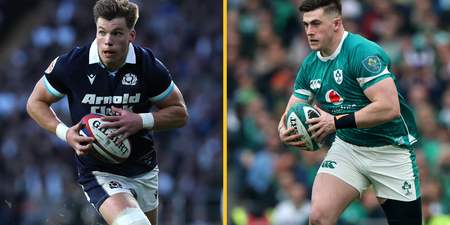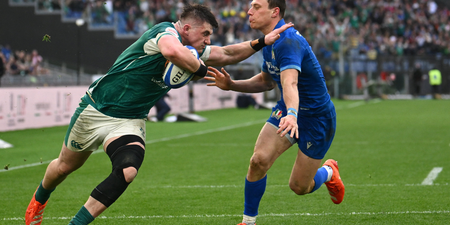Come on, Dublin, for God’s sake. The whole island is waiting for you to obliterate this.
It’s a mark of just how good Dublin are and how well-equipped Jim Gavin is that a 13-point provincial final victory is met with shaking heads and alarm bells.
The Leinster champions ultimately cruised to a fifth successive title over Westmeath on Sunday but, such is their superiority in the east, that we expect more. We demand more.
It’s for their own good, really.
The whole country watches on and tries to judge Dublin on how they’d cope with better opposition facing them. They were ambushed against Donegal last year when they were seemingly unstoppable so, when they’re beating Longford, Kildare and Westmeath, the real question is will they be ready for Kerry, Mayo, Donegal? Cork and Monaghan, even.
They take on Kerry or Cork in the quarter finals and, if their showing in the last eight is anywhere near as sloppy as it was in the Leinster final, they could be caught again.
And all it really took was another blanket defence to set up before them and the sky blue steam train slowed right down.
Westmeath have been adopting that cautious, defensive approach for all of one game now. They had practiced it for two weeks before the Dublin match. And, okay, whilst they still lost, whilst they failed to show how they would ever score enough to win, they showed up more cracks lining the capital outfit that will have the like of Eamonn Fitzmaurice and Rory Gallagher licking their lips.
Westmeath throw 12 men behind the ball, only Jack McCaffrey offers an outlet to the carrier on the left wing, the rest watch on. Static. Apprehensive. The Lake county held Dublin to a single score in 13 minutes and that set the tone for a series of forced and unforced errors in a haphazard display.
Dublin simply walked up to the Westmeath barrier together, and then they played ball outside of it. Again. Like they always do. Westmeath watched them.
This is the sort of option that was being offered.
Diarmuid Connolly was always looking to make something happen. He was pinging passes inside, hitting scores from ridiculous distances, taking men on. Like all of the Dublin team can do.
But, faced with a few more bodies in their way, they were withdrawn. Literally. Why would a man, on the wing, behind the ball carrier, standing completely still, be looking for the ball in that position?
That the Dubs took that option on far too many occasions was their biggest problem.
The time of their attacks was very laboured, compared to what we all know it could be.
In the first half, it took them an average of over 25 seconds to start an attack and draw a shot. And this is having dominated the midfield as well and having turned Westmeath over up the park time and again.
Against Longford, the stats showed that Dublin were clearly trying to speed up their attacks. They were kicking passes as much as they could and they were trying to keep the faffing about down to a minimum.
They fell into bad habits eventually though and, in the lack of being tested, they look to be no further forward three games on.
In the second period, they dallied even more.
They were taking even longer – over 30 seconds on average – to start an attack only to end it with a missed shot. Some of their scores were from angles and distances that, normally, would’ve been a waste of their 30, 40, or 50 seconds of build-up but, luckily, they had abnormal players like Diarmuid Connolly and Alan Brogan hitting the target.
Give any team that time though, and they’re set up as solidly as they will ever be. The ball needs to go quickly, the attack needs to climax quickly, otherwise it’s too late. Otherwise, it’s just a waste of time.
But, on too many occasions, they had done far too much work, spent way too much time only for someone to then just swing a leg at it from stupid areas. Why not just do it in the first place? Why are you even taking your time if that’s how it’s going to end?
Half of Dublin’s eight first half scores, for example, could be credited as a fine effort. And most of their missed shots were from places Westmeath were probably happy to let them shoot from.
In the second half, their inability – or refusal – to penetrate the blanket defence was even more glaring.
No-one’s saying it’s not difficult but, in this current Dublin squad, there are the tools to hammer down any wall, the brains to solve any puzzle and the agility to worm their way through anything.
Jack McCaffrey, for example, showed how simple it could be.
He faces a blanket defence, he takes on his man. The whole thing opens up. He gets a shot from the D on his instep – the perfect position – and he should score.
Michael Darragh MacAuley decided enough was enough. He ran at two men, he powered through both of them, he fisted over with ease. That decision to drive had Westmeath’s spare sweepers looking completely and utterly pointless.
Seven opposition defenders guard the D. Ciaran Kilkenny injects a bit of power – you know, the sort every Dubliner has. He hammers over, he should score a goal.
But he needs that help and that intent from the rest of them.
Listen, running isn’t the simple answer. It won’t always work. Most of the time, teams will want you to run at them if the rest of your team is going to leave you hanging out to dry.
An early ball in is the best way around a mass defence but, generally, that avenue is closed pretty quickly. After that, you need drive. You need purpose. You need skill and power and that’s exactly what Dublin have. You need to drag men out of position, create openings that aren’t there initially.
And it needs to be done before 25 bloody seconds have passed.
This was one occasion in the second period when Kilkenny threw the ball backwards 55 metres from goal, under no pressure, no-one even thinking about tackling him and, the only man within 10 metres of him is outnumbered 6-on-1.
It just summed up the attitude of Dublin’s attacks when they saw some numbers in their road. It was almost like passing the buck. Someone else will do something with it.
And the amount of times Dublin conceded possession in open play didn’t correlate at all with their safe, directionless play. If anything, their lateral tendencies were an even bigger risk.
Most of the time, they were losing the ball from way beyond the scoring zone. You wouldn’t have minded as much if they were trying to make something happen and being stripped in dangerous areas. But they were just wasting time until they lost it.
They lost the ball more times in the first half than they got a shot out of it.
It was almost the same pattern against Longford.
And, lose the ball in open play in those positions against the better teams, you’re in trouble. Big trouble.
It’s perhaps not fair to judge them, especially when they’re romping through against teams and winning silverware en route.
Maybe this is just the new tactic. After all, Dublin conceded just six scores in a provincial final. They worked their arses off relentlessly and they were genuinely rock solid at the back.
Maybe they were just doing what they did to Derry in the league and doing enough, not risking it. Why are they obliged to do all the scoring? They’re still winning.
But the worry is that they’re still not learning. And, ahead of Kerry and Cork, ahead of the real action now, they’ll have to learn damn quickly.
They’re the one team who have it in them to annihilate this blanket defence fad. And we’re all crying out for them to do it.
















